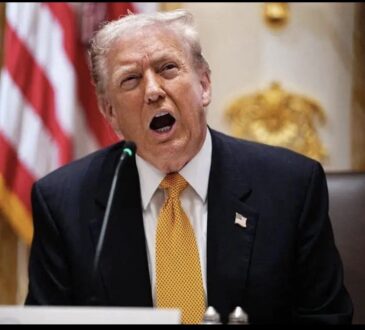
The Supreme Court recently stepped in and gave Donald Trump’s administration a temporary legal victory in a case that could shape how much control a president has over independent government agencies.
These agencies, like the Federal Trade Commission, are designed to operate somewhat separately from the White House so they can make decisions without political pressure. But at the same time, they are still part of the government, and presidents have often argued they should have the authority to remove agency leaders if they see fit. This case is testing that balance of power.
Rebecca Slaughter, who was serving as a commissioner on the FTC, was removed by Trump earlier this year in March. She believed the firing wasn’t legal because federal law says commissioners can only be removed for specific reasons, such as if they are not doing their job, if they are neglecting their duties, or if they are guilty of misconduct. She sued to challenge her removal, arguing that Trump overstepped his authority.
Another commissioner, Alvaro Bedoya, also filed a similar lawsuit after being removed, but he later dropped his case when he chose to step away from government work altogether and pursue another career.
In July, a district court judge, Loren AliKhan, ruled in Slaughter’s favor. The judge said Trump’s administration could not remove her or interfere with her work unless it was done under the very limited reasons spelled out by the law. That decision was a setback for Trump because it suggested the president did not have full control over firing agency officials.
The administration immediately appealed the ruling to the D.C. Circuit Court of Appeals. At first, the appeals court granted a short pause that stopped the district court’s ruling from going into effect, but a few weeks later, the court lifted that pause. That meant Slaughter’s victory was back in place, and Trump’s team could not legally block her from serving.
Not willing to stop there, Trump’s lawyers asked the Supreme Court to intervene. On September 8, Chief Justice John Roberts issued a temporary order putting the district court’s ruling on hold again. This gives Trump a small but important win while the case continues. The Court has requested more written arguments, and a decision on whether to extend the pause for the duration of the appeal is expected soon.
It is important to understand that this latest Supreme Court order is not a final ruling on whether Trump can legally remove commissioners like Slaughter. It only pauses things until the justices decide whether the administration deserves a longer break from the lower court’s decision. In other words, Slaughter has not been officially removed from her role, and the case is far from over.
This legal battle matters because it could reshape how much independence these agencies actually have. If the courts eventually decide presidents do have the power to remove commissioners at will, then future presidents, not just Trump, will have much more influence over agencies that are supposed to operate with some separation from political control.
On the other hand, if the courts say presidents cannot freely remove commissioners, then these agencies will remain more insulated from politics, but presidents will likely complain that they are unable to fully oversee parts of the executive branch they are supposed to manage.
So far, Trump can claim this as a small victory since the Supreme Court stepped in on his side, at least for now. But the fight over whether presidents have the authority to remove independent agency leaders will take more time, and the final outcome could have lasting consequences for how the government operates.




